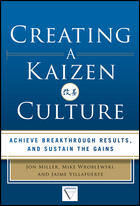There is a popular logic puzzle often referred to as “The Doors to Heaven and Hell” or “The Two Gates” riddle. It goes something like this:
You find yourself standing in front of two identical doors. One of these doors leads to Heaven and the other to Hell. Next to each door is an identical guard, only capable of communicating by pointing, indistinguishable from each other except that one always tells the truth, the other always lies. You, unfortunately, do not know which is which, of neither the door, nor the guard. You can pose only one question to one of them in order to find the way to Heaven. What question do you ask?
If you do not want to know the answer, venture no further. For the brave souls who have chosen to continue on, the answer is: Ask one of the guards, “If I ask the other guard which door leads to Heaven, what will he answer?” Regardless of which you ask this question of, they would point to the path to Hell, leaving you to choose the other door, leading you to Heaven.
The logic used to illicit the correct door from the guards is similar to the psychology used by law enforcement during interrogations. It’s a standard example in the discipline of game theory called “The Prisoner’s Dilemma” and anyone who has ever watched a police drama on TV will recognize it.
Two criminals are arrested. They are separated with no means to communicate with one another. The police lack sufficient evidence to convict them, but will leverage the fact that the two men do not know they lack the evidence, so each man, presented with the prospect of doing hard time, is given the opportunity to either betray the other by testifying that the other committed the crime, thereby guaranteeing he will serve a lesser sentence, or remain silent, and risk the chance the other will take a similar deal to “roll over” on him.
The theory behind this approach is that human beings will act in their own best interest, in essence, choosing the better “deal” for himself in turn for betraying the other.
But both of these “riddles” are examples of making decisions with limited information. Wouldn’t your process of determining what question to ask of which guard change if you should have some way of identifying which guard was which, or even better, which door was which? Say for instance that the criminals were aware that the evidence did not exist to convict them. Most likely both would remain silent. At the least, if these men were on the same page as to how to handle the interrogation, their decision making could bring about a more cooperative result.
Such is the idea behind our industry’s standards and the adoption of a culture of quality. Find out more about the latest with ISO standards in “2017: A Year of Transitions in ISO-related Standards” and the competitive advantage of a culture of quality in “A Paradigm Shift to a Culture of Quality.” And see how the newest and future members are being introduced to the industry with “The Next Generation of Manufacturing Professionals,” all in the pages of this month’s Quality.
Enjoy and thanks for reading!


